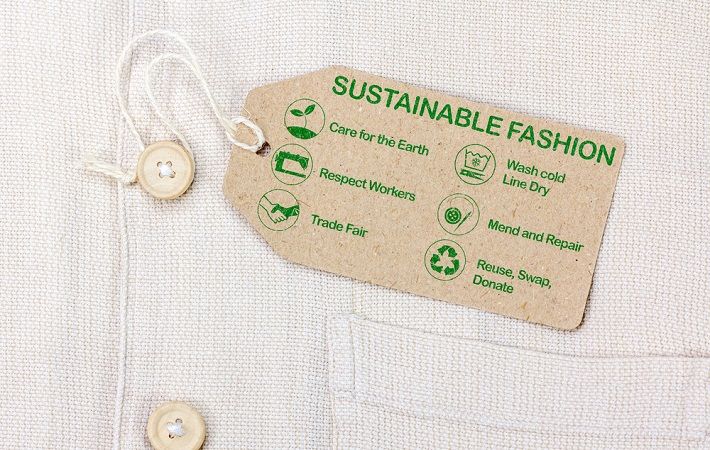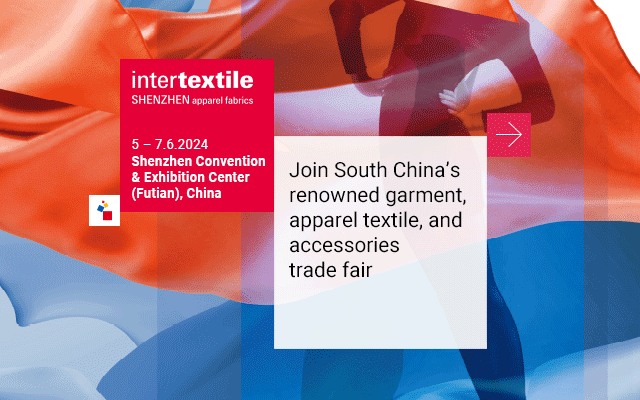Interviews
Your go-to source for news, anytime, anywhere! Insightful industry information from the textile, apparel & fashion world with our news app
Download Now
Your go-to source for news, anytime, anywhere! Insightful industry information from the textile, apparel & fashion world with our news app
Download Now
Your go-to source for news, anytime, anywhere! Insightful industry information from the textile, apparel & fashion world with our news app
Download Now
Your go-to source for news, anytime, anywhere! Insightful industry information from the textile, apparel & fashion world with our news app
Download Now
News Flash
Sustainable fashion viewed as necessity in industry now: GlobalData
16 Jun '21
3 min read

Pic: Shutterstock
Consumers have shown a keen interest in brands adopting more sustainable actions in their value chains post-COVID-19 and an emerging trend in the apparel industry is circular economy. While Europe and the Americas have been quite reactive to this trend, the Asia-Pacific (APAC) region still has a long way to go to achieve sustainability standards, according data analytics firm GlobalData.
UK retailers are undertaking appropriate initiatives to meet the Net Zero retail target by 2040, which means decarbonisation of the retail industry and supply chain operations. To illustrate, in August 2020, Selfridges launched Project Earth, a scheme featuring resale, rental, refill and repair services across its fashion and beauty departments to enhance its sustainability credentials.
Similarly, in the Americas, Rent the Runway, a US-based apparel rental company, partnered with thredUP to minimize fashion waste and increase the lifespan of dresses. These initiatives will help move towards a circular economy, GlobalData said in a press release.
“Loss of jobs and pay cuts due to the pandemic restricted splurging in apparel. The growing popularity of luxury re-commerce will satisfy consumer sentiments at an affordable price, while recycling apparel will aid the reduction of carbon footprints in the manufacturing process, which is beneficial for retailers in addressing global sustainability concerns and targets,” Debalina Banerjee, retail analyst at GlobalData, said.
Apparel manufacturing’s reliance on standard-specified items for mass production and storage is evolving with customer expectations, resulting in an on-demand production system. It is a method of producing things just when they are necessary and in the quantities required, and the good news is that it is progressively gaining traction among retailers.
“On-demand production is a great way to curtail the loss of inventory. Disruption and closing of inventories with the pandemic led to the loss of inventory and resources on a large scale. Production based on demand will resolve this problem and be a move towards net-zero retail, however, the flip side is increased wait time for customers,” Banerjee said.
Apparel retailers are using non-fungible token (NFT) to monetize value and exclusivity, by ensuring traceability through the supply chain and retail operations, thus serving as a proof of ownership for the customers. An NFT is a data unit stored in a blockchain that certifies a digital asset as special and therefore non-transferable.
“The integration of NFTs in business will help retailers to maintain credibility and transparency for customers. This will particularly help luxury retailers beat the issue of counterfeiting, which is on the rise every day. This will also ensure smooth functioning of the supply chain, which benefits retailers that are trying hard to achieve efficiency in these times,” Banerjee added.
UK retailers are undertaking appropriate initiatives to meet the Net Zero retail target by 2040, which means decarbonisation of the retail industry and supply chain operations. To illustrate, in August 2020, Selfridges launched Project Earth, a scheme featuring resale, rental, refill and repair services across its fashion and beauty departments to enhance its sustainability credentials.
Similarly, in the Americas, Rent the Runway, a US-based apparel rental company, partnered with thredUP to minimize fashion waste and increase the lifespan of dresses. These initiatives will help move towards a circular economy, GlobalData said in a press release.
“Loss of jobs and pay cuts due to the pandemic restricted splurging in apparel. The growing popularity of luxury re-commerce will satisfy consumer sentiments at an affordable price, while recycling apparel will aid the reduction of carbon footprints in the manufacturing process, which is beneficial for retailers in addressing global sustainability concerns and targets,” Debalina Banerjee, retail analyst at GlobalData, said.
Apparel manufacturing’s reliance on standard-specified items for mass production and storage is evolving with customer expectations, resulting in an on-demand production system. It is a method of producing things just when they are necessary and in the quantities required, and the good news is that it is progressively gaining traction among retailers.
“On-demand production is a great way to curtail the loss of inventory. Disruption and closing of inventories with the pandemic led to the loss of inventory and resources on a large scale. Production based on demand will resolve this problem and be a move towards net-zero retail, however, the flip side is increased wait time for customers,” Banerjee said.
Apparel retailers are using non-fungible token (NFT) to monetize value and exclusivity, by ensuring traceability through the supply chain and retail operations, thus serving as a proof of ownership for the customers. An NFT is a data unit stored in a blockchain that certifies a digital asset as special and therefore non-transferable.
“The integration of NFTs in business will help retailers to maintain credibility and transparency for customers. This will particularly help luxury retailers beat the issue of counterfeiting, which is on the rise every day. This will also ensure smooth functioning of the supply chain, which benefits retailers that are trying hard to achieve efficiency in these times,” Banerjee added.
Fibre2Fashion News Desk (DS)
Popular News
Leave your Comments
Editor’s Pick
Folker Stachetzki
Brother Internationale Industriemaschinen GmbH
Aleksandre Akhalkatsishvili
Label - Aleksandre Akhalkatsishvili
































-Ltd..jpg?tr=w-120,h-60,c-at_max,cm-pad_resize,bg-ffffff)





.jpg?tr=w-120,h-60,c-at_max,cm-pad_resize,bg-ffffff)
.jpg?tr=w-120,h-60,c-at_max,cm-pad_resize,bg-ffffff)






